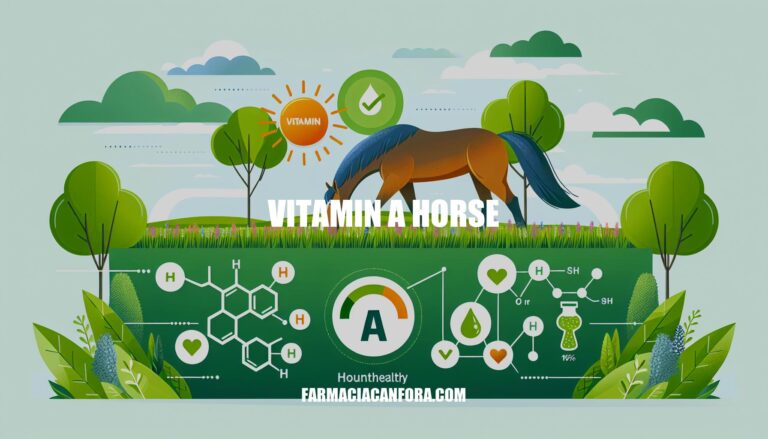


Vitamin A is crucial for horses, playing a vital role in their overall health and well-being. It supports vision, reproductive functions, and the immune system, ensuring horses stay healthy and active. This essential nutrient is typically obtained from fresh forage, making it a key component of a balanced equine diet.
Horses primarily obtain vitamin A from fresh forage and high-quality hay. Fresh grass and green alfalfa hay are rich in beta-carotene, the precursor to vitamin A. When horses consume these sources, beta-carotene is converted into vitamin A in their intestines.
This conversion process ensures that horses grazing on good pastures during the growing season meet their vitamin A needs naturally. High-quality hay, especially early bloom alfalfa hay, retains more beta-carotene, making it a valuable source when fresh forage is not available.
Here are the benefits of Vitamin A for horses:
Here are the signs and symptoms of vitamin A deficiency in horses:
Here are guidelines for supplementing vitamin A for horses:
Use Fortified Feeds:
Consider Fresh Forage:
Supplement with Carrots:
Consult a Veterinarian:
These steps will help ensure your horse receives the necessary vitamin A for optimal health.
Over-supplementing vitamin A in horses can lead to several health issues:
Balanced nutrition and regular monitoring of vitamin levels are crucial to prevent these risks and ensure your horse’s overall health.
Vitamin A is essential for horses, supporting vision, reproductive functions, immune system, growth, and development.
Horses obtain vitamin A from fresh forage, high-quality hay, and beta-carotene-rich foods like carrots. Deficiency can lead to night blindness, poor coat condition, weakened immune response, weight loss, and other symptoms.
To ensure adequate vitamin A levels, provide access to fresh pasture or high-quality hay, use fortified feeds, supplement with carrots, and consult a veterinarian for tailored advice.
Over-supplementation can cause health issues like bone problems, skin and coat issues, blood clotting disorders, and toxicity symptoms. Balanced nutrition and regular monitoring are crucial to prevent these risks and maintain overall horse health.